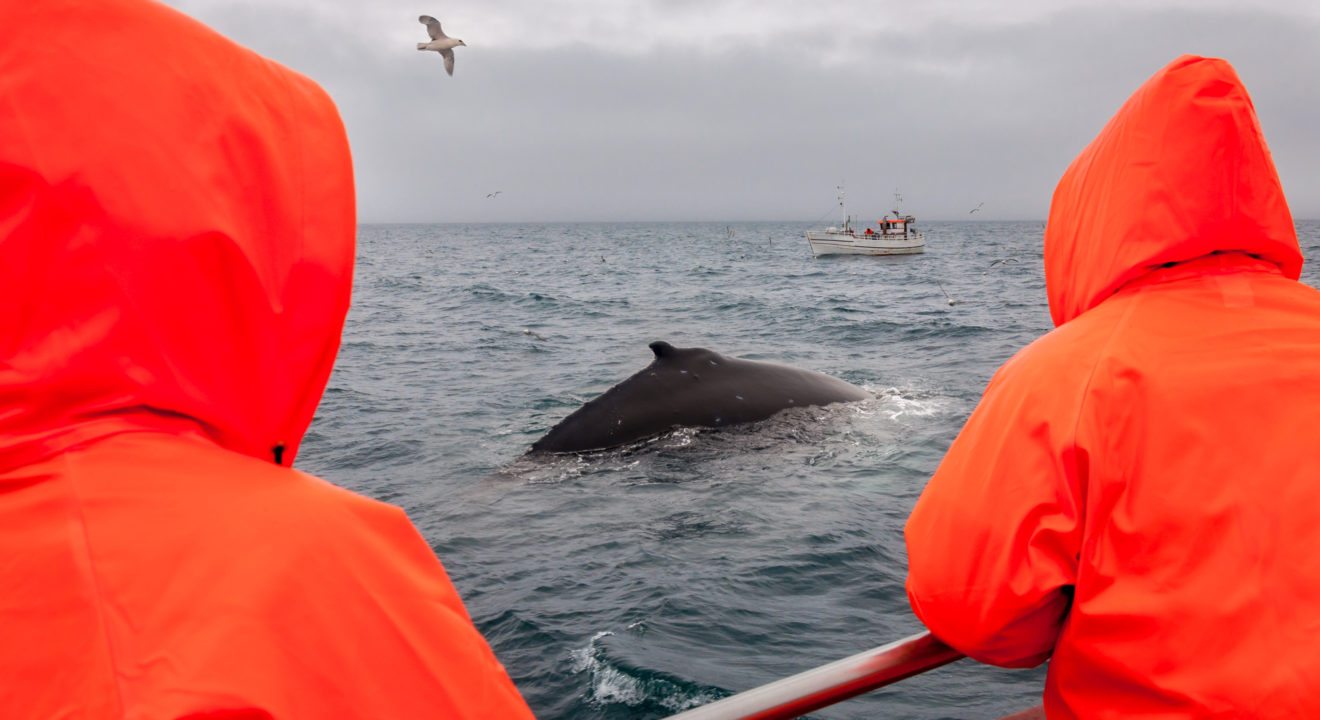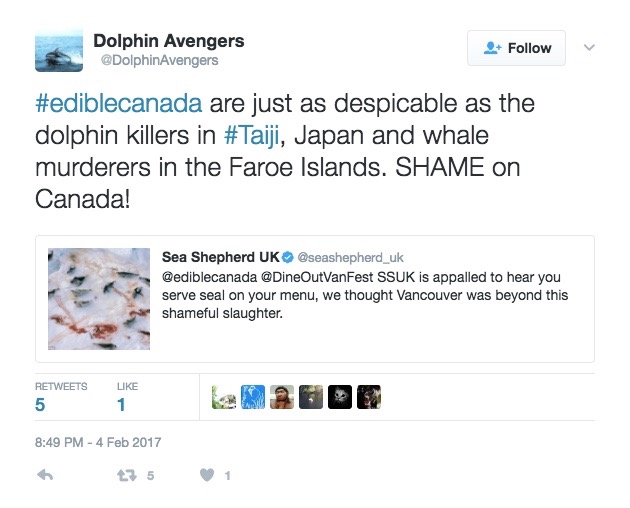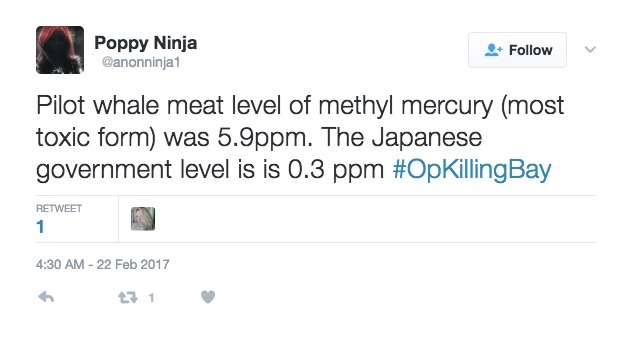Sustainability February 17, 2017


Close your eyes and imagine a beautiful island covered in lush green grass with magnificent cliffs hovering above the ocean’s edge. Now, imagine that island as you just pictured it – only the water has turned scarlet red as one hundred and fifty pilot whales are rounded up, dragged to shore and killed. This is a regular occurrence at the Faroe Islands. Some refer to the hunting by its traditional name, the “grindatrap” but locals affectionately know it as “the grind.”
READ MORE: Ricky Gervais’s Top 9 Inspirational Animal Rights Tweets
What purpose does the grind hold for the Faroese? What do animal activists have to say about the grind? And will this ancient practice ever be stopped? To find out what you should know about whale hunting at the Faroese Islands, ENTITY talked with Dr. Russell Fielding, a Sewanee assistant professor of Environment and Sustainability who has researched the Faroe Islands since 2005, and Liesbeth Zegveld, a lawyer who represents the Sea Shepherd Conservation Society (who has advocated against the grind for years).
Here’s why we should still be talking about the grind at the Faroe Islands.
To put it simply, the grind is the Faroese tradition of hunting and slaughtering pilot whales for food and sport. The tradition dates back to the sixteenth century or even earlier, according to Dr. Fielding, and it involves “the Faroese [using] flotillas of boats to drive groups, known as ‘pods,’ of long-finned pilot whales and other small cetaceans into the fjords and onto the beaches of their islands. Once stranded on the beach or in shallow water, shore-based participants kill the whales using simple hand tools and haul [the whales] completely onto dry land using ropes. The meat and blubber are processed into food, which is given freely to all who qualify for shares.”
Where exactly is this happening? Today, the Faroe Islands are a self-governing nation situated in the North Atlantic halfway between Iceland and Scotland. Although the Islands remain somewhat autonomous, they are technically part of the Kingdom of Denmark. Interestingly, Denmark has remained an anti-whaling nation and has laws that prohibit the slaughter of cetaceans.
READ MORE: Is Human Noise Hurting Ocean Creatures?
The Faroese claim to not be subject to those same laws – but activists like Sea Shepherd believe otherwise. “Pilot whaling is illegal. Denmark – as the ‘parent’ state of its overseas territory, the Faroe Islands – should be held accountable,” explains Zegveld. “Denmark not only allows whaling on the Faroe Islands, it even actively supports it…with its police and its court system.”
It’s important to mention that the hunt is not completely unregulated. Whales can only be killed if they are spotted close to shore, and every participant in the actual killing must carry a hunting license. The laws may be well meaning, but they don’t do that much to regulate the grind. For one thing, pilot whales are known for being social, so when they spot boats in the water, they will naturally swim toward them. The whales also travel in large pods, so when you spot one, chances are there are about 100 to 200 more traveling with it. And finally, the hunting license can be obtained by any postal worker, shopkeeper or bus driver who is willing to take the required two-hour test.
If this whole practice is starting to make your stomach churn, you’re not alone. Activists from all over the world have joined forces to put an end to this gruesome whale hunt. The most notable of these activist groups, Sea Shepherd, gathers volunteers from around the world to stop the killing and distribution of whale meat for food. In fact, in 2015, 14 Sea Shepherd volunteers were arrested for interfering with the grind.
READ MORE: Michael Sheen and 5 Other Celebrities Who Double as Activists
Locals argue that the grind is a cultural tradition – and tradition is hard to argue against, especially for those that have no relationship to the Faroese community or culture. As Dr. Fielding puts it, “Some of these methods might seem unsavory to those of us who live in places with more globalized food networks. [However, the Faroese] are friendly, hardy, cosmopolitan, and resourceful. I would suggest that a visit to a slaughterhouse where cattle, swine, or fowl are processed into food would engender an equal[ly negative] response.” 

There are other arguments in favor of the hunt, though, that are easier to break down. For example, many Faroese claim that whales are a primary food source necessary to the community’s survival – but that statement just isn’t true.
Sure, whale and fish meat probably dominated the Faroese’s diet back 200 or 300 years ago when the island was a self-sustaining community, largely isolated from the rest of the world. As Zegveld points out, though, “in light of present day globalization and commerce, animal-rights groups and societies such as Sea Shepherd criticize the cruelty and question the necessity of the Grind practice.”
READ MORE: This Is Why Every Woman Definitely Needs to Go Whale Watching
Not only that, but recent reports from researchers like Dr. Fielding have found that pilot whales are no longer safe forms of food thanks to high levels of mercury. “Methyl-mercury is created when elemental mercury, a by-product of coal combustion, settles into the sea floor and is converted to an organic form by the microscopic organisms that live in the sediments,” Dr. Fielding explains. “As the methyl-mercury works its way up the food chain, it increases in concentration. Humans who consume whales–a top predator in the marine environment–are exposed to dangerously high levels of methyl-mercury and other contaminants.” 

So, the grind isn’t good for the whales…or the people. Yet, around 800 pilot whales are still hunted annually.
In 2015, activist and actor Ross McCall visited the Faroe Islands and wrote about his experience at the Huffington Post. Like any good journalist, he thought it only right to see the whale hunt up close and personal. So he took the test, got his license to hunt, and reported what he saw. He is unapologetic about his disdain for the grind – and he’s brutally honest in his descriptions. One of the most stomach-turning?
McCall reports: “I’ve now seen the Grind. I’ve walked through the aftermath. The carnage. The carcasses that have been brutally sliced open at the guts. I’ve seen the fetuses. The numbers scraped into the skin. I’ve seen the locals let their children play on the bodies. Seen the knives left in the whales’ skulls. I’ve watched as they used a buzz saw to remove their heads. Watched their gall bladders being cut out. I think it’s fair to say that I do have a little knowledge of what happens there. I’ve met the men who plunge the MONUSTINGARI’S, (retractable spears), into the backs of the Pilot Whales. I’ve witnessed them do it. It’s chilling. It’s devastating.”
His visit took place over two years ago, but I bet that if he visited again this year, he’d reach similar conclusions. After all, stopping the grind isn’t easy.
For instance, Dr. Fielding doesn’t believe the hunting – a natural part of Faroese culture – should be stopped. Instead, he calls for an end to “industrialized nations like the U.S., EU, Russia, China and India polluting what was once a sustainable, local food source for a remote island nation.” If the hunt were to stop, though, he thinks the main causes would be “an increase in public awareness regarding the health risks that consumption of related food products present.” In other words, advocating for whales’ lives and health is probably less effective than advocating for healthier hunters.
READ MORE: The Shark Savior: How Conservationist Erika Wunch Fights for Change
For Sea Shepherd, though, the only change that could stop whale hunting would be interference by the Denmark government – which is why Sea Shepherd plans to “bring legal proceedings against Denmark,” according to Zegveld.
Although these two perspectives and methods of stopping the grind differ, they have one important element in common: a realization that tradition isn’t easily changed.
After all, tradition, culture and community are all aspects of life highly (and – dare I say – universally) valued by humans. The Faroese are incredibly proud of whale hunting, which has been passed down from generation to generation, from grandfather to son to grandson. But is tradition really a strong enough excuse? I say no.
The truth is, it’s not just time to talk about whale hunting at the Faroe Islands. It’s time to reconsider the value of any tradition that unnecessarily takes the life from any living being.